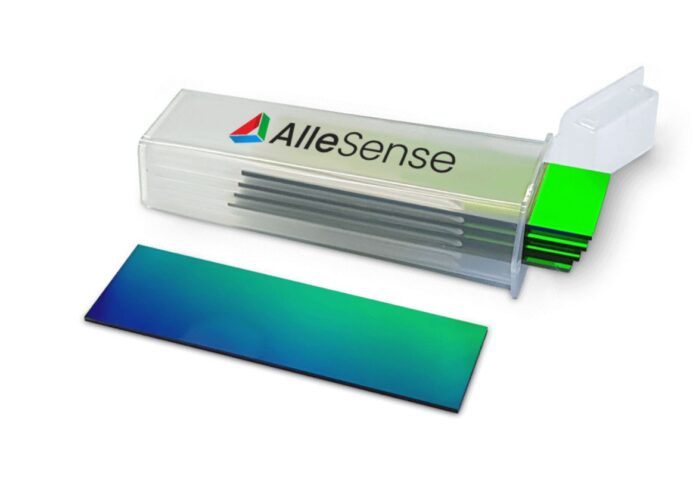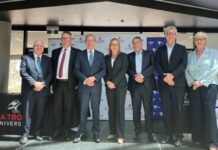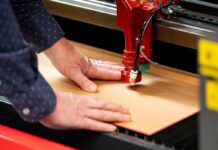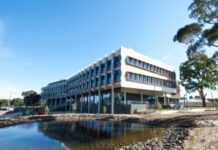
La Trobe University has launched its first major spin-out company, AlleSense, to support the commercialisation of technology that is anticipated to revolutionise medical imaging.
The technology, dubbed NanoMslide, is a world-first nanofabricated microscope slide that uses colour contrast to streamline the identification of abnormal cells in a suspect sample.
NanoMslide applies a special coating created using cutting-edge nanofabrication technology to the glass microscope slide, effectively turning it into a miniature chemistry lab, reducing time and removing dyes from the process.
Invented by La Trobe researchers Professor Brian Abbey and Dr Eugeniu Balaur, from the School of Computing, Engineering and Mathematical Sciences and the La Trobe Institute for Molecular Science, the technology is designed to be applied to any tissue and has shown significant promise in aiding the diagnosis of early-stage and difficult-to-diagnose cancers, including breast cancer.
Set to be established with an initial investment of $2.5 million, AlleSense will enable researchers to accelerate the development of the NanoMslide to clinical trials and facilitate further technology validation with their global partners.
The investment will also help scale up product manufacturing, ensuring the slides are produced in Australia for a global market.
The technology is slated to undergo rapid clinical translation and is expected to be available for research use by the end of 2024.
“This technology has the potential to distinguish cancer cells from normal or benign cells in the breast, allowing accurate diagnosis at a very early stage. We are excited to test whether the NanoMSlide also has potential in early diagnosis of a range of cancers,” said co-inventor Professor Belinda Parker.
The technology received significant attention globally after its publication in Nature in 2021.
The NanoMSlide was supported through La Trobe’s Strategic Innovation Fund, established to fast-track the translation of research findings into successful business ventures.
The AlleSense team is validating their manufacturing and quality management system with support from the Australian National Fabrication Facility (ANFF) and its ANFF-C translation fund, as well as the ANFF-funded Melbourne Centre for Nanofabrication, which purchased an instrument to support the team’s proof-of-scale studies.
The launch of AlleSense builds on eight years of intensive research by the La Trobe University team at the La Trobe Institute for Molecular Science in collaboration with the Peter MacCallum Cancer Centre and Garvan Institute of Medical Research.
The company will be based at La Trobe’s Bundoora campus as part of the Research & Innovation Precinct, which is a core component of the University City of the Future.




















